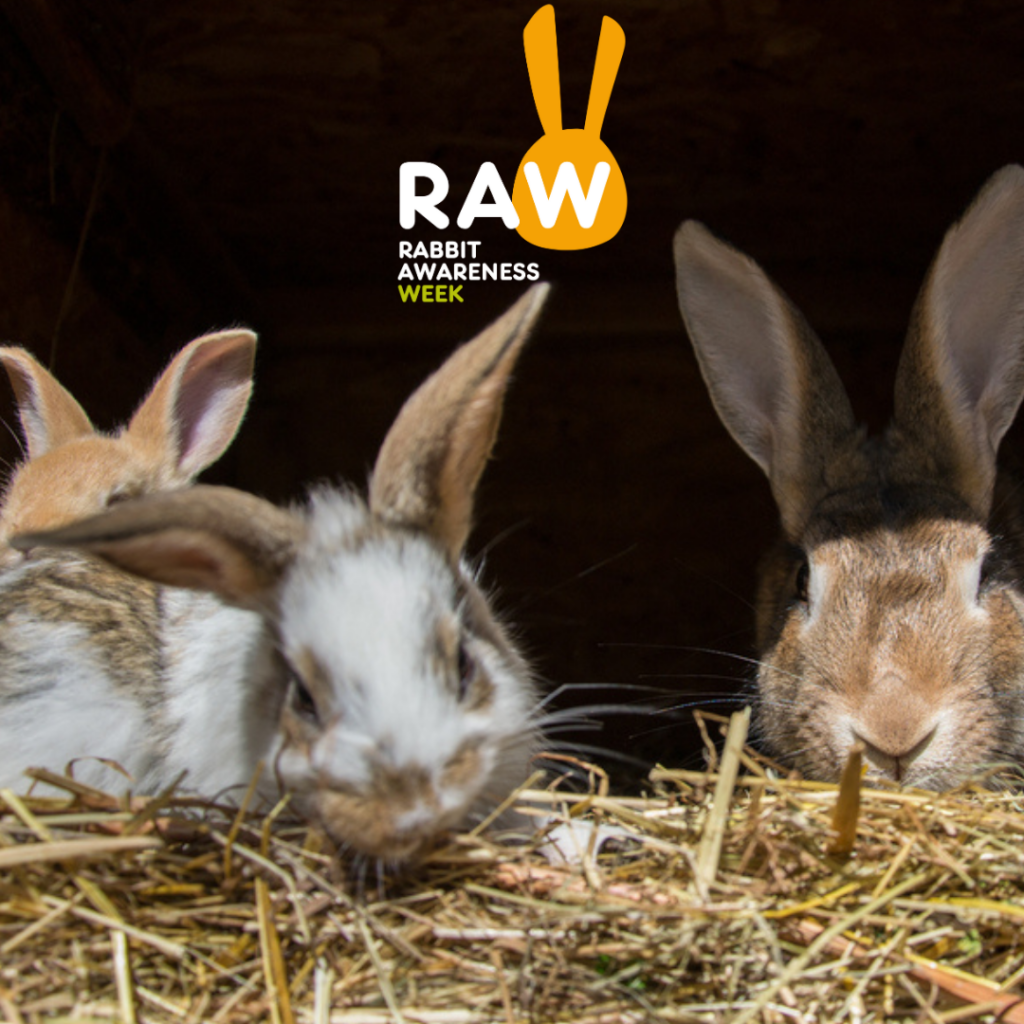Rabbit Neutering: Protect and Prevent
Find out how to get involved in this year’s Rabbit Awareness Week. Plus, bunny experts answer your FAQs about neutering your pet rabbits
That well-known phrase ‘breeding like rabbits’ certainly has a ring of truth. The RSPCA says: “Rabbits have evolved to reproduce quickly; pregnancies are short, lasting about a month, and with an average litter size of five to eight kits (baby rabbits). Rabbits can then become pregnant again within hours of giving birth. All these factors combined means that a doe (female rabbit) can produce approximately 30 young in a single breeding season!”
With so many unwanted rabbits currently waiting for new homes at rescue centres, neutering your bunnies is not only an important responsibility, but it also provides your pets with a whole host of health and wellbeing benefits.
To raise awareness of those benefits, this year’s theme for Rabbit Awareness Week (RAW) 2023, which is runs from 26 to 30 June, is ‘Neutering: Protect and Prevent’.
Neutering for a long and healthy life
Rabbit Welfare Association & Fund (RWAF), a charitable organisation that works to ensure all pet rabbits in the UK are cared for with understanding, insight and kindness, states: “Neutering – it’s not just about babies… it’s vital for a long and healthy life. It’s important to your rabbits’ welfare that they live in pairs or groups, and neutering allows them to do this. It prevents life-threatening health problems (especially in female rabbits) and, of course, prevents unwanted pregnancies.”
Rabbit Awareness Week (RAW) is brought to bunny lovers across the nation by Burgess Excel, alongside our charity partners: Wood Green Animal Shelter, RSPCA, Blue Cross, Rabbit Welfare Association & Fund (RWAF), and our newest partner – Raystede Centre for Animal Welfare.

Join our Excel bunnies, Hayley and Binky, to find out more
Burgess Pet Care Digital Marketing Executive, Kealy Guest, says: “This year’s action-packed event will feature loads of great information, including blogs and videos from vets and rabbit experts. Join our Excel bunnies, Hayley and Binky, throughout the week as we explore neutering and all things rabbit welfare-related on our social media channels.”
Kealy continues: “We’ll also be working closely with veterinary practices across the UK who may be running special events for this year’s RAW event, so check with your local vet and ask if they’re getting involved.”
Neutered bunnies make great companions
Dr Suzanne Moyes, in-house vet at Burgess Pet Care, which has been leading RAW since 2006, says: “The Rabbit Action Awareness Group (RAAG), which campaigns to improve the welfare of pet rabbits, decided to adopt neutering for the theme of this year’s RAW campaign, as we want to raise awareness of its benefits among owners. As well as the health benefits, neutered rabbits are generally calmer too. For example, if you have indoor rabbits, you’ll find that neutered bunnies are less likely to exhibit marking behaviours around the home.”
Alison Speakman, President at the British Small Animal Veterinary Association (BSAVA), which endorses RAW, adds: “The BSAVA is once again delighted to support RAW and the important theme of the awareness of neutering. Rabbits are wonderful sociable pets and thrive in the companionship of other rabbits, but neutering is a critical part of responsible rabbit ownership and welfare to prevent unwanted litters and protect against diseases of the reproductive tract.”
NEUTERING FACT FILE
- Neutering is the act of removing reproductive organs. This is known as spaying for females and castrating for males.
- Neutering not only prevents breeding and unwanted litters, but also prevents diseases linked to reproductive organs. Around 90% of unneutered female rabbits develop cancer of the womb by the age of five.
- Neutering helps to promote harmonious relationships between bonded pairs.
- Female rabbits reach sexual maturity between four to six months of age and are usually spayed when they are around four to five months old.
- Male rabbits reach sexual maturity at around three months and can be castrated as early as 10 to 12 weeks. However, they can remain fertile for up to six weeks, post castration, so should be kept apart from unneutered female rabbits during this period.

KEEP YOUR NEWLY NEUTERED BUNNIES CLOSE TOGETHER BUT SAFELY APART WITH A RUNAROUND BONDING WALL. This mesh partition divides your run, allowing your buns to see, smell and sit with each other, while keeping a safe and secure divide between them.
Neutering your rabbits – FAQs
Q: What are the key benefits of neutering rabbits?
A: Animal charity Wood Green advises: “If you love rabbits, remember it’s best they live as a pair to keep them happy and healthy. The best mix is a male and female, but make sure they’re neutered. Benefits of neutering include:
- Helping prevent uterine cancer in females, which they are very prone to from the age of four years.
- Reducing the early signs of fighting.
- Stopping male rabbits spraying over their enclosure, their companion, and you.
- A much higher success rate when bonding.
- Stopping females from experiencing phantom pregnancies, which can be stressful for them.
- A much higher success rate when bonding, if you’re planning on introducing more than one pair of rabbits.
- Preventing unexpected/unwanted babies.
- Helps with litter training.
Q: What age can rabbits be neutered?
A: Veterinary charity PDSA advises: “Most female rabbits can be neutered from around five months old, but giant breeds take longer to mature, so may be as late as eight months. Male rabbits can be neutered as early as 10 weeks. Rabbits are able to get pregnant at around three months old, so males and females must be kept separate from this age (ideally a bit before), until after they have been neutered. Male rabbits can remain fertile for up to six weeks after they have been castrated, but females are sterile immediately.”
Q: How do I tell the sex of my rabbits?
A: PDSA advises: “You can tell the sex of most rabbits from around six weeks old.” The charity has a useful step-by-step guide and video. If you’re at all unsure, it’s always best to consult your vet.
Q: How do I choose the right vet to neuter my rabbits?
A: RWAF advises: “It’s important to choose a suitable veterinary practice to neuter your rabbits. Like any other specialist field, vets vary in their interests and expertise in rabbit medicine. Check out RWAF’s choosing a good vet page.
Q: How much does neutering cost?
A: The price of neutering your rabbit will depend on their sex, and your individual vet practice – contact your vet for prices. As a guide, on average, prices range from £80-£160. PDSA provides low-cost and free vet services to the pets of people in need. Depending on your location and benefit status you may be eligible for support.
Q: How do I care for my rabbits before and after the operation?
A: Wood Green advises: “Going into a vet practice can be very stressful for pet rabbits. To help reduce this, you can take some of their bedding with them that has their scent, which can then be placed in the hospital cage. Rabbits must have plenty of hay and fresh food available pre and post op. Rabbits must continue to eat to maintain their gut movement.
“Once your rabbits return to their enclosure, it can be a good idea to offer a soft, warm area for them to rest. Using some towels and even a snuggle-safe heat pad placed within their enclosure can be ideal.”

